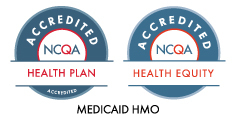TotalCare (HMO D-SNP) Opioid Information
Safe pain management and understanding opioids
Opioids are a group of medications that doctors may prescribe to help you manage pain. Some common opioids include hydrocodone, oxycodone, morphine, tramadol, methadone, fentanyl, and codeine.
Opioids can help with short-term pain, but using them for a long time can be risky. If you’re taking or considering taking opioids for more than three months, it’s important to know the possible side effects and learn about safer options.
Risks of taking opioids for a long time
Taking opioids for too long may cause:
- Addiction or misuse – 1 in 4 people using opioids long-term may struggle with misuse.
- More pain – Opioids can sometimes make pain worse over time or cause pain in other areas of the body.
- Serious health problems, such as:
- Trouble breathing.
- Confusion.
- Constipation.
- Low mood or depression.
- Hormone changes.
- Falls and broken bones.
- Heart issues.
- Overdose or even death.
Opioids are especially dangerous if taken with other medications that make you sleepy, like drugs for anxiety or sleep (such as benzodiazepines).
Safer ways to treat pain
You have options for managing pain that don’t involve opioids. These include:
- Non-Medicine Therapies:
- Physical therapy – Exercises to help you move better and feel stronger.
- Acupuncture – A traditional method that may help reduce some types of pain.
- Chiropractic care – Hands-on care to improve joint and muscle function.
- Counseling & Behavioral Health– Can help if pain is affecting your mood or sleep.
- Relaxation techniques – Like deep breathing or meditation.
- Non-Opioid Medicines:
- Acetaminophen (Tylenol).
- NSAIDs (ibuprofen, naproxen, diclofenac).
- Antidepressants – Some also help with nerve pain (amitriptyline, duloxetine).
- Anticonvulsants that help alleviate nerve pain (gabapentin, pregabalin).
- Creams or patches you apply to the skin (lidocaine 4%).
- Naloxone – what it is and where you can get it
Naloxone is a medicine that can stop an opioid overdose if used right away. If someone you love overdoses, having naloxone in your first-aid kit or with you can save their life! Alliance members (including TotalCare members) can get Naloxone at no cost at all Alliance offices. Our offices are open Monday through Friday, 8 a.m. to 5 p.m. You can also ask your pharmacist for Naloxone. No prescription is needed. A list of Alliance office locations can be found can be found on the Contact Us page of this site.
Talk to your doctor
We want to help you manage pain in the safest and best way possible. If you’re taking opioids, talk to your doctor or pharmacist about:
- The risks of long-term opioid use.
- Whether other treatments could work better.
- How to safely lower or stop opioids if needed.
Helpful resources:
- Centers for Medicare & Medicaid Services (CMS) - Resources to reduce opioid misuse
- The Centers for Disease Control (CDC)’s Clinical Practice Guideline for Prescribing Opioids for Pain — United States, 2022
We are here to help you.
You can speak to a Member Services Representative by calling 833-530-9015
Contact Member Services
- Monday through Friday, 8 a.m. to 8 p.m.
- Phone: 833-530-9015
- Deaf and Hard of Hearing Assistance
TTY: 800-735-2929 (Dial 711) - Nurse Advice Line
Resources
Latest News
H5692_2026_0113 File & Use 09.24.2025
8 a.m. to 8 p.m., seven days a week






